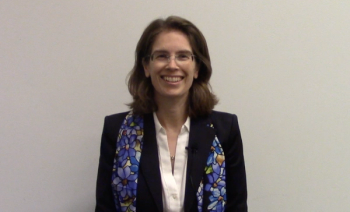
The professor of neurology at Washington University in St. Louis, spoke about sleep-wake patterns in epilepsy based on a special lecture from the 2022 AES Annual meeting. [WATCH TIME: 6 minutes]

The professor of neurology at Washington University in St. Louis, spoke about sleep-wake patterns in epilepsy based on a special lecture from the 2022 AES Annual meeting. [WATCH TIME: 6 minutes]
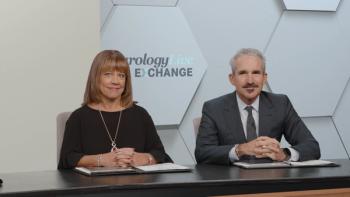
Stephen Krieger, MD; Daniel Bandari, MD, MS; Bruce Hughes, MD; Mitzi Williams, MD; and Heidi Crayton, MD, examine the safety of sphingosine 1-phosphate receptor modulators for the treatment of multiple sclerosis.
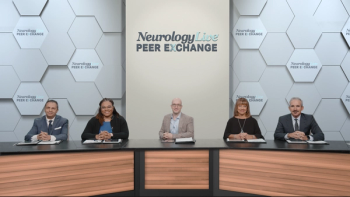
An expert panel talks about the preservation of brain health regarding the use of sphingosine 1-phosphate receptor modulators to treat multiple sclerosis.
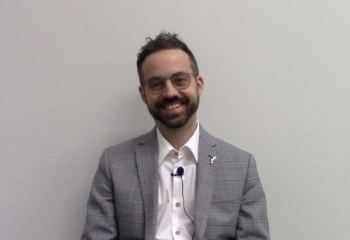
The associate professor of neurology at the University of Calgary spoke about advancing epilepsy care through patient-oriented research at the 2022 AES Annual Meeting. [WATCH TIME: 6 minutes]
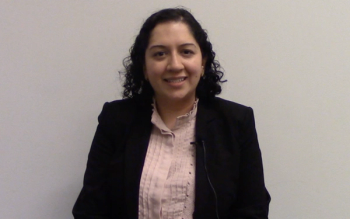
The associate professor of neurology at Wayne State University in Detroit, Michigan, spoke about expensive antiseizure medications for epilepsy along with spending for Medicare and Medicaid at the 2022 AES Annual Meeting. [WATCH TIME: 4 minutes]
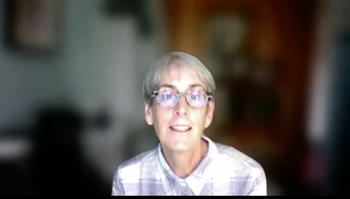
The professor of neurology and pediatrics at the University of Alabama at Birmingham Epilepsy Center provided perspective on the strides made with detection and treatment of infantile spasms. [WATCH TIME: 3 minutes]
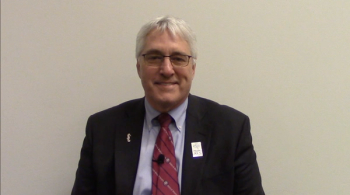
The professor of neurology at Washington University in St. Louis, and the president of the American Epilepsy Society, shared his perspective on John Hughlings Jackson’s observations of epilepsy in the brain and how it can inform modern practice. [WATCH TIME: 5 minutes]
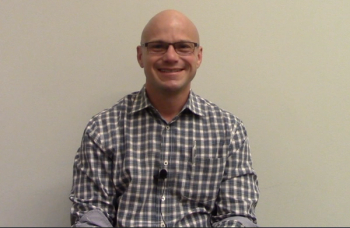
The assistant professor in the department of pharmacology and chemical biology at Emory University School of Medicine spoke about immune cells in epilepsy based on his special lecture at the 2022 AES Annual Meeting. [WATCH TIME: 4 minutes]

The associate clinical professor of neurology at OSU Wexner Medical Center discussed the state of interdisciplinary care for individuals with epilepsy, and how these care teams operate. [WATCH TIME: 2 minutes]
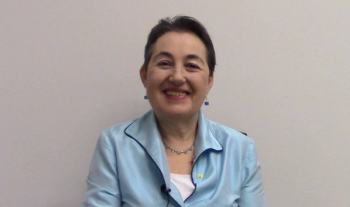
The professor of neurology at NYU Grossman School of Medicine and chief medical officer of the Epilepsy Foundation discussed the critical need to ensure the proper classification of seizures when enrolling patients in clinical trials. [WATCH TIME: 4 minutes]
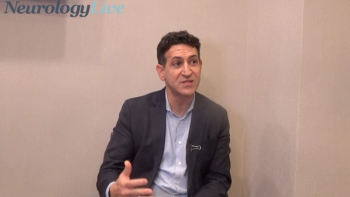
The behavioral neurologist at the Barrow Neurological Institute provided perspective on the safety profile of lecanemab and the importance of a low incidence of amyloid-related imaging abnormalities. [WATCH TIME: 3 minutes]
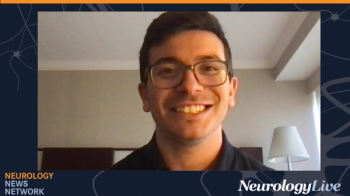
Neurology News Network for the week ending December 3, 2022. [WATCH TIME: 3 minutes]
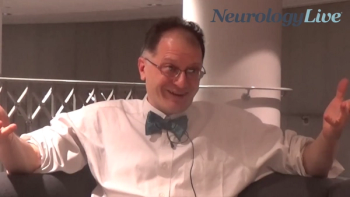
The senior research scientist at the Institute for Systems Biology spoke about changing the perception of clinical trials for Alzheimer disease research based on the COCOA trial presented at the 2022 CTAD conference. [WATCH TIME: 2 minutes]
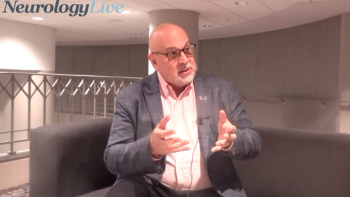
The director of the Comprehensive Center for Brain Health at the University of Miami Miller School of Medicine discussed the treatment differences and unmet needs between dementia with Lewy bodies and Alzheimer disease. [WATCH TIME: 4 minutes]

The senior research scientist at the Institute for Systems Biology spoke about his presentation on multimodal clinical and lifestyle interventions that improve cognitive outcomes at the 2022 CTAD conference. [WATCH TIME: 4 minutes]

The president and CEO, as well as the executive vice president and chief research officer, of MDA, together offered an in-depth overview of what to expect from the 2023 MDA Conference, which will be held from March 19-22, 2023, in Dallas, Texas. [WATCH TIME: 12 minutes]

The senior physician and head of the Multiple Sclerosis Centre at University Hospital Basel spoke about his partnership with Octave and their work assessing and validating biomarkers for use in multiple sclerosis. [WATCH TIME: 4 minutes]
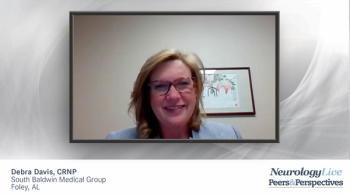
Advanced practice practitioners discuss dual orexin receptor antagonists (DORAs) suvorexant, lemborexant, and daridorexant for the treatment of sleep disorders.

Wendy Wright and Debra Davis provide an overview of pathways and neurotransmitters involved in sleep and wake cycles.
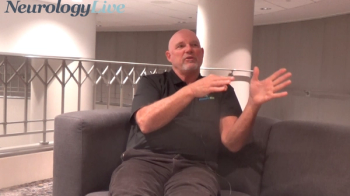
The president and chief executive officer of INmune Bio detailed the mechanistic advantages of XPro1595 as a potentially therapeutic benefit for patients with Alzheimer disease and dementia. [WATCH TIME: 5 minutes]
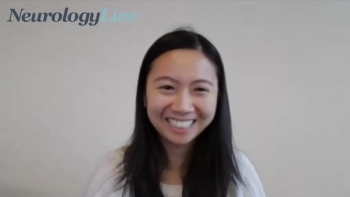
The neuropsychologist at Rutgers University spoke about her recently awarded NIH grant to study the impact of health and lifestyle behaviors in individuals with MS. [WATCH TIME: 3 minutes]
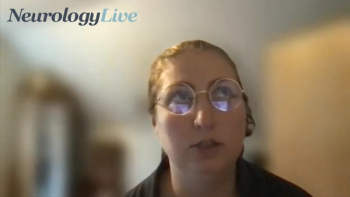
The assistant professor, Rutgers University, New Brunswick, New Jersey, offers an overview on her ongoing lab project about a music-based intervention to improve insomnia in dementia and caregivers. [WATCH TIME: 3 minutes]
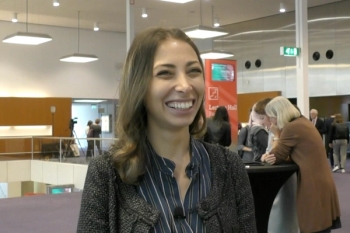
The postdoctoral researcher and health psychologist at King's College London spoke at ECTRIMS 2022 about the digital approach to treating fatigue in multiple sclerosis and the lack of available measurements. [WATCH TIME: 3 minutes]
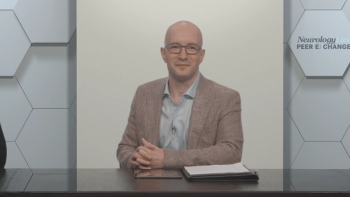
Stephen Krieger, MD; Daniel Bandari, MD, MS; Bruce Hughes, MD; Mitzi Williams, MD; and Heidi Crayton, MD, review data on ponesimod vs teriflunomide for the treatment of female patients with multiple sclerosis who are of childbearing age.

An expert panel provides an overview of sphingosine-1-phosphate receptor modulators and their use in the treatment of multiple sclerosis.
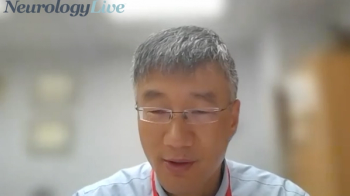
The division chief of stroke and vascular neurology at Duke Health provided perspective on the multidisciplinary team needed to treat neuromuscular poststroke symptoms, as well as exciting innovations on the horizon. [WATCH TIME: 4 minutes]
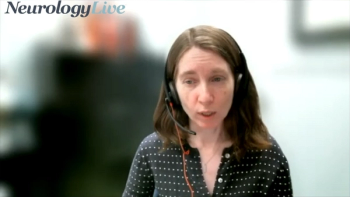
The professor of medicine at the University of Manitoba provided insight on a recently published paper which challenges the way multiple sclerosis is categorized and treated. [WATCH TIME: 5 minutes]
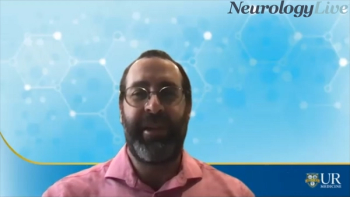
The president of the International Neuropalliative Care Society detailed potential disease states that could benefit from neuropalliative care as well as the importance of the patient community in expanding this type of approach. [WATCH TIME: 4 minutes]
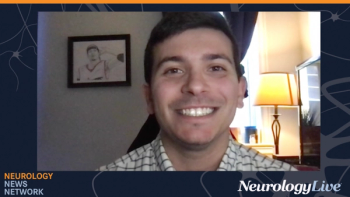
Neurology News Network for the week ending November 26, 2022. [WATCH TIME: 4 minutes]

The postdoctoral researcher and health psychologist at King's College, London spoke at ECTRIMS 2022 about the relationship between mood and fatigue in patients with MS. [WATCH TIME: 2 minutes]